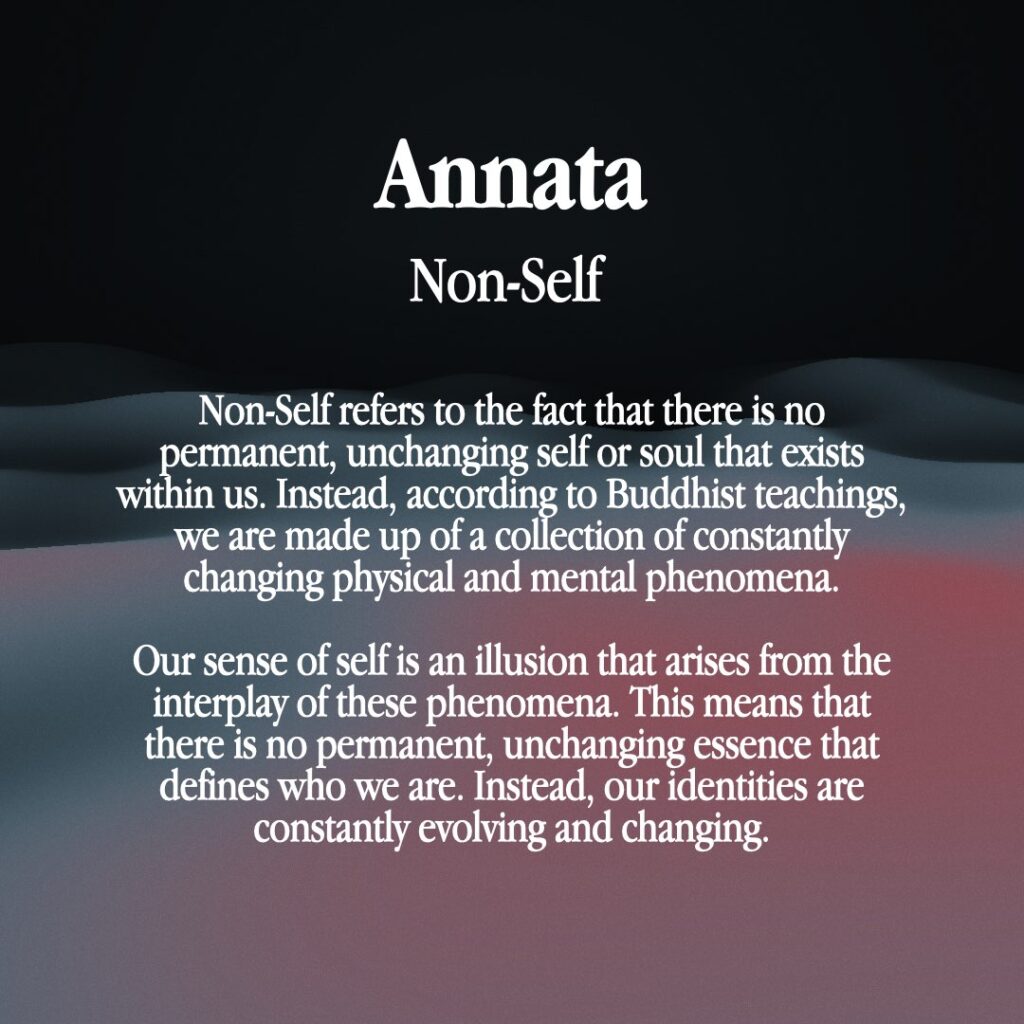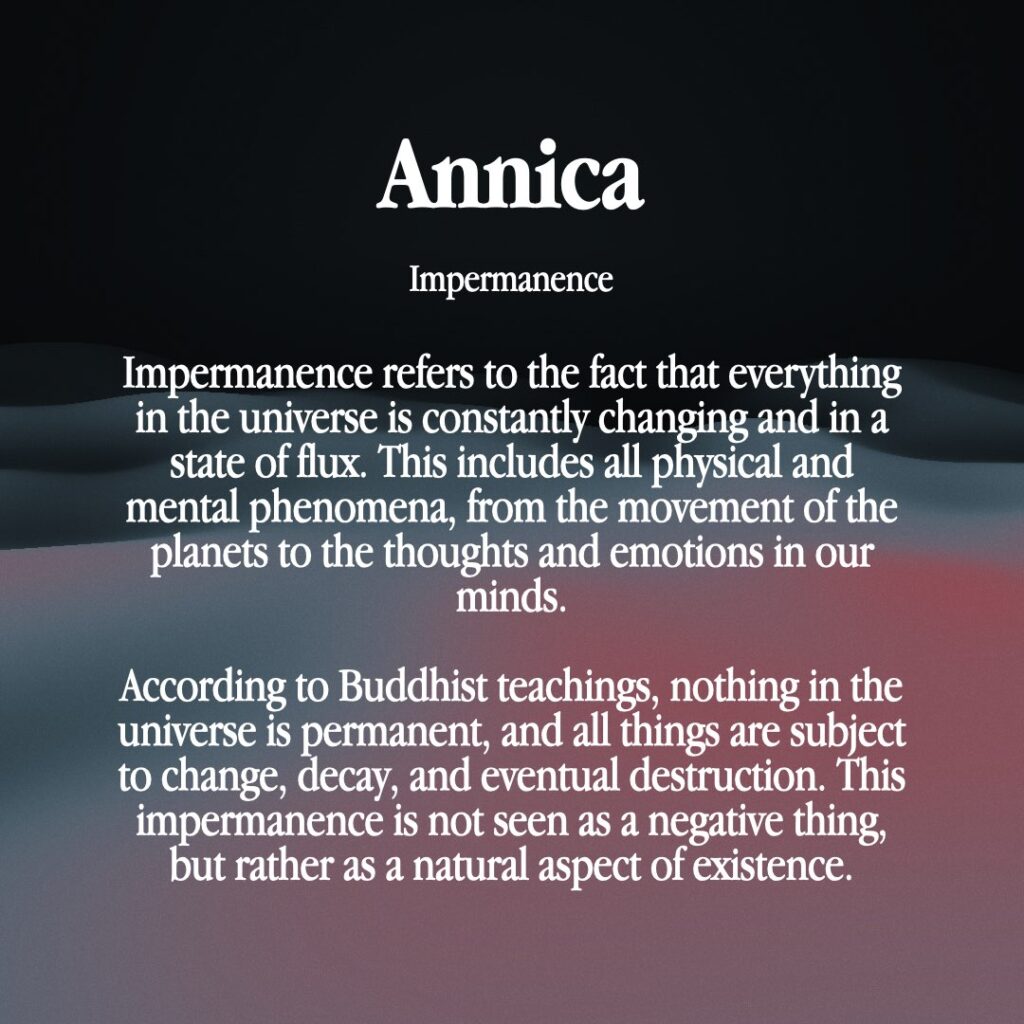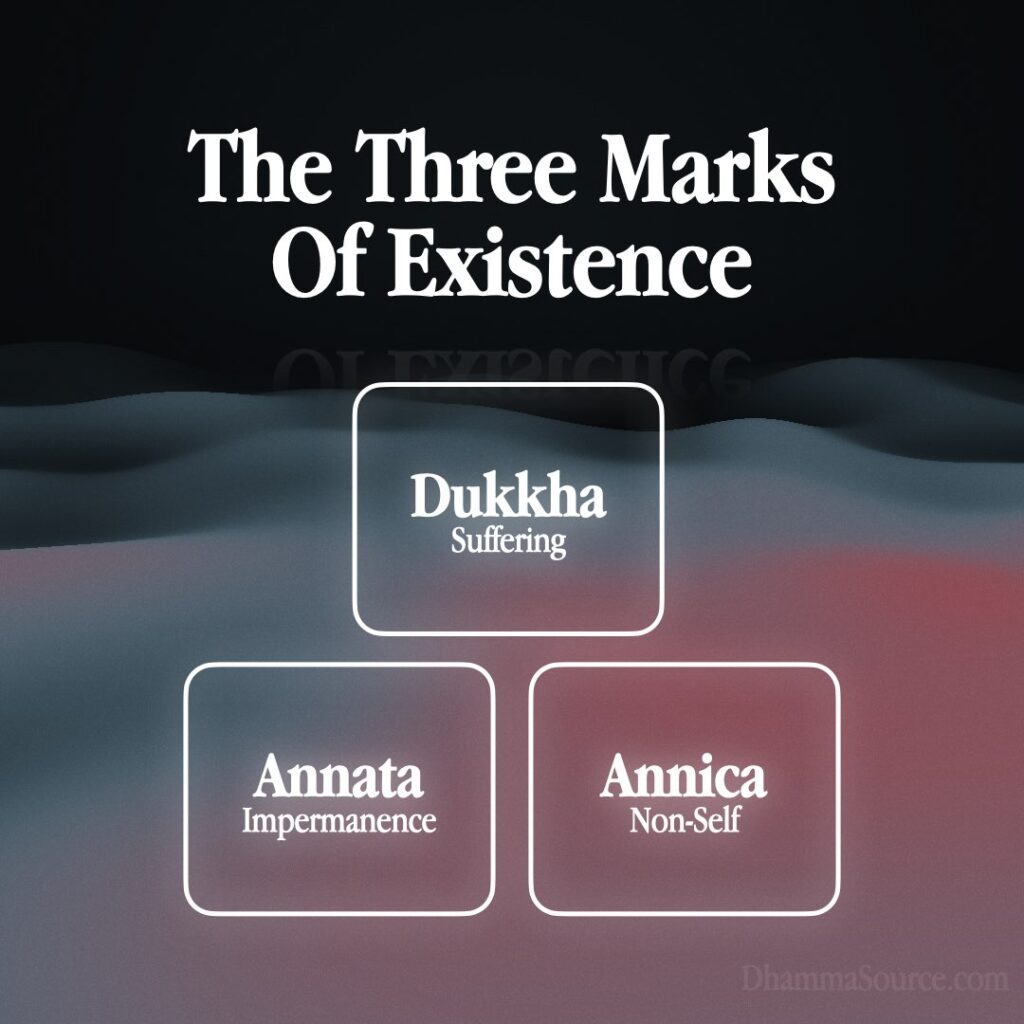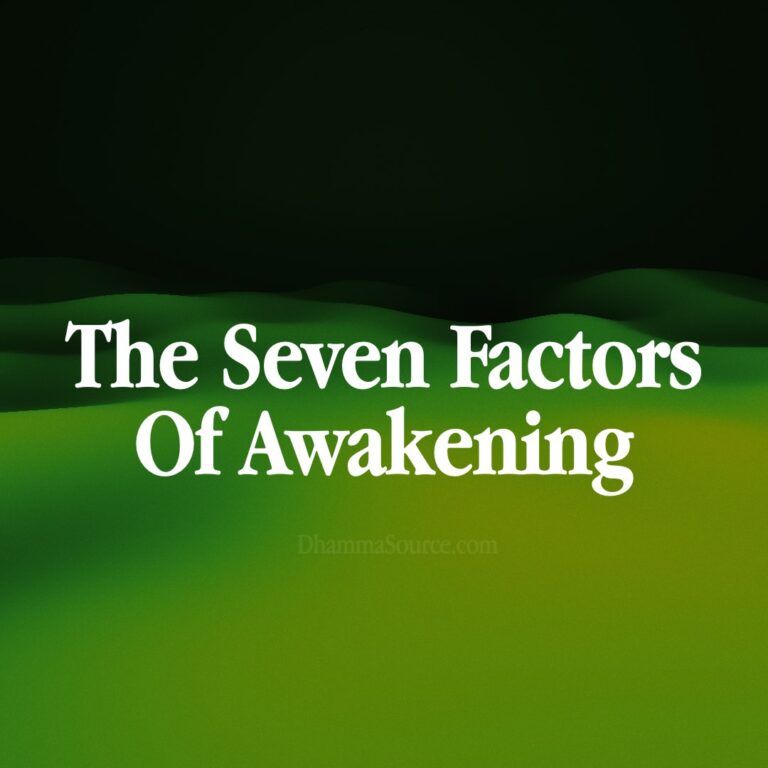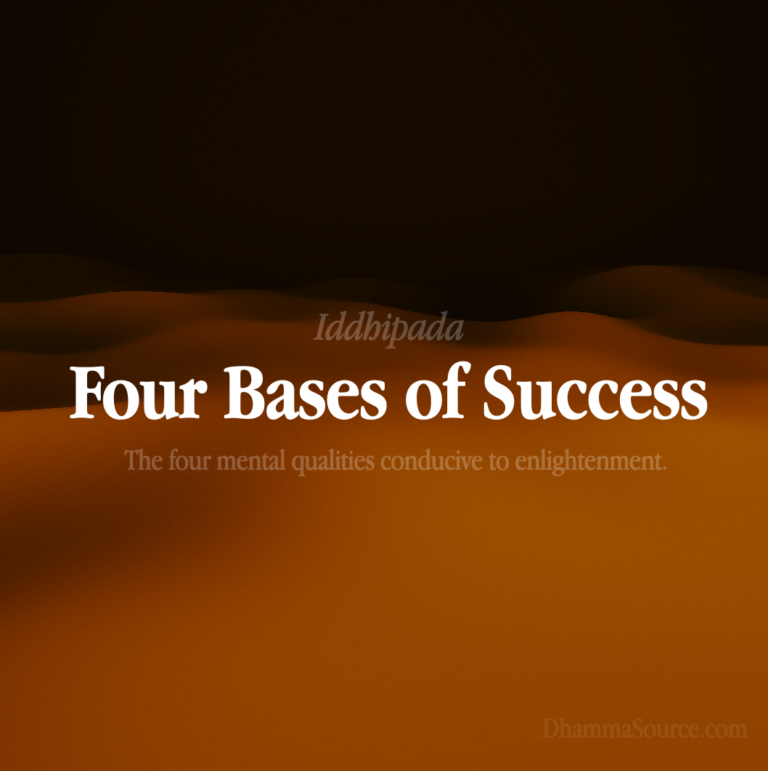The Three Marks of Existence – Buddhism
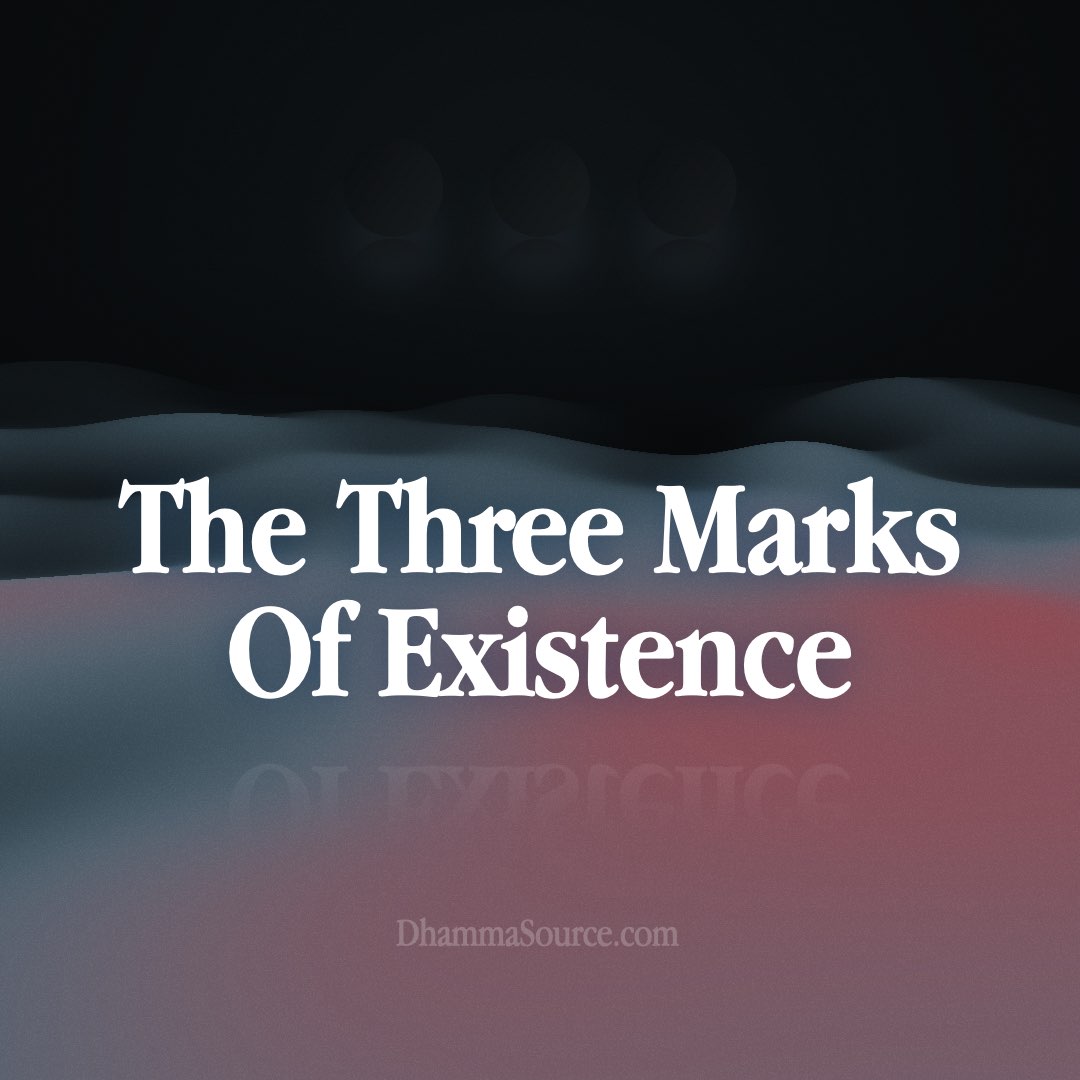
One of the key concepts in Buddhism is the Three Marks of Existence, which are also known as the Three Universal Truths. These three marks are an essential part of Buddhist teachings and provide a framework for understanding the nature of reality.
The Three Marks of Existence are:
- Impermanence (Anicca)
- Suffering (Dukkha)
- Non-Self (Anatta)
Let’s take a closer look at each of these marks.
- Impermanence (Anicca)
Impermanence refers to the fact that everything in the universe is constantly changing and in a state of flux. This includes all physical and mental phenomena, from the movement of the planets to the thoughts and emotions in our minds. According to Buddhist teachings, nothing in the universe is permanent, and all things are subject to change, decay, and eventual destruction. This impermanence is not seen as a negative thing, but rather as a natural aspect of existence.
- Suffering (Dukkha)
Suffering refers to the fact that all living beings experience some degree of pain, discomfort, or dissatisfaction in their lives. This suffering can take many forms, from physical pain and illness to emotional distress and spiritual turmoil. According to Buddhist teachings, suffering is an inherent part of life, and it arises from our attachment to things that are impermanent and constantly changing. The goal of Buddhist practice is to lessen our suffering by letting go of attachment and finding peace within ourselves.
- Non-Self (Anatta)
Non-Self refers to the fact that there is no permanent, unchanging self or soul that exists within us. Instead, according to Buddhist teachings, we are made up of a collection of constantly changing physical and mental phenomena. Our sense of self is an illusion that arises from the interplay of these phenomena. This means that there is no permanent, unchanging essence that defines who we are. Instead, our identities are constantly evolving and changing.
Together, these three marks of existence form a core part of Buddhist teachings and provide a framework for understanding the nature of reality. By recognizing the impermanence of all things, the inherent suffering in life, and the non-existence of a permanent self, Buddhists strive to live in a way that brings them closer to enlightenment and freedom from suffering. By understanding and accepting these three marks, we can begin to live more fully in the present moment and find peace within ourselves.
